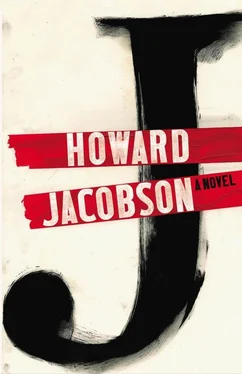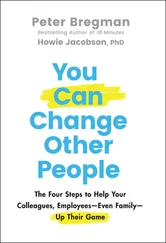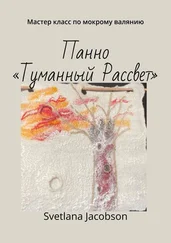He had always dipped intermittently into these publications, enjoying picking up his great-grandfather’s thoughts at random, not least because Clarence Worthing had been a cut above the rest of the family, a self-taught thinker and self-bred dandy who had moved in circles of society unimaginable to Eugene Gutkind. He had never met his great-grandfather but had heard tell of him from his grandmother, Clarence Worthing’s daughter, something of a lady herself, and a bohemian to boot, who revelled in the fact that she had hardly ever seen her father, so tied up was he in his affairs — in all senses of the word, if Eugene knew what she meant — a whirl of feckless forgetfulness which she put down to his having been rejected as a young man by the only woman he had ever truly loved — a woman who was not her mother. Eugene marvelled that she was not hurt by this. You could not be hurt by such a man, she told him, so stylish was he even when he let you down. Gutkind yearned to have let someone down stylishly. Taking out the newspapers he bathed in the glorious retrospective reflection of his great-grandfather’s irresponsibility. . and pain. By means of Clarence Worthing, Gutkind too became a person to be reckoned with — a man with a tragic past and a liquid way with words and women.
Over and above this he liked reading the Worthing papers for the clarity of their reasoning and on that account read them, again and again, chronologically and therefore, he surmised, systematically. One train of thought in particular engrossed his attention because it seemed to explain something that was crying out for explanation. And tonight Gutkind was of a mood to peruse it again. In the course of it — an extended essay entitled When Blood Is Thicker Than Water — his great-grandfather sought to lay the blame for everything he thought wrong with the world, from the moral, political, ethical and even theological points of view, on ‘those’ who cultivated a double allegiance which was plain for everybody to see but which good manners forced society to turn a blind eye to. In fact, the phrase ‘double allegiance’ let them off too easily, he argued, for the question had to be asked whether they considered they owed any sort of genuine allegiance to this, or any country in which they’d found themselves, at all.
Or any sort of allegiance to him , Gutkind surmised. He didn’t mind that his great-grandfather’s reasoning reeked of the ad feminam. How else do you measure a great wrong unless you have been on the receiving end of it? If his great-grandfather proceeded from a position of profound personal disappointment — betrayal even — that made his arguments only the more persuasive to Detective Inspector Gutkind.
‘Observe their cohabiting customs,’ Gutkind’s great-grandfather wrote, ‘observe them as a scientist might observe the mating habits of white mice, and you will see that however far outside the swarm they wander to satisfy their appetites, for purposes of procreation they invariably regroup. They choose their mistresses and lovers from those for whom they feel neither respect nor compassion and their wives and husbands from their own ranks. As is often reported by innocents who encounter them without knowing by what rules they live, they can be companionable, amusing, even adorable, and in some circumstances, especially where reciprocal favours are looked for, munificent. But this to them is no more than play, the exercise of their undeniable powers and charm for the mere sadistic fun of it. Thereafter their loyalty is solely to each other. Let one of their number suffer and their vengefulness knows no limits; let one of their number perish and they will make the planet quake for it. To some, this is taken to be the proof of the steadfastness of their tribal life, the respect and affection they have been brought up, over many generations, to show to one another. But it is in fact a manifestation of a sense of superiority that values the life of anyone not belonging to their “tribe” at less than nothing. Only witness, in that country which they call their ancestral home (but which few of them except the most desperate appear to be in any hurry to repair to), a recent exchange of prisoners with one of their many enemies in which, for the sake of a single one of their own — just one — they willingly handed over in excess of seven hundred! The mathematics make a telling point. Never, in the history of humanity, has one people held all others in such contempt, or been more convinced that the world can, and will, be organised for their benefit alone. It has been said that were the earth to be laid waste, so long as not a single hair of one of theirs was harmed, they would connive in that destruction. That is not a justification for their destruction, though others argue persuasively for it. But it does invite us to ask how much longer we can tolerate their uncurbed presence.’
Gutkind so admired the adamantine and yet heartfelt quality of his great-grandfather’s prose that he was at a loss to understand why there had been no published collection of his articles or, come to that, why he had not cut a dash in parliamentary politics. Had his notorious social life taken up too much of his time, or were his words too prophetic for the age he lived in? Gutkind knew for himself what it was to be unappreciated and felt for his great-grandfather’s sorrows a scalding agony which there was no warrant to suppose Clarence Worthing ever felt himself.
Part of what Gutkind admired about Worthing’s work was its conscientious refinement of argument from one article to the next. The refusal of all talk of destruction with which one essay ended, for example, was picked up again in the next with an allusion to ‘self-destruction’, that being the course on which ‘the arrogant, the forward and the vain’, as he called them, appeared, paradoxically, to be hell-bent. ‘Some worm of divisiveness in their own souls has impelled them — throughout history, as though they knew history itself was against them — to the brink of self-destruction. Imaginatively, the story of their annihilation engrosses them; let them enjoy a period of peace and they conjure war, let them enjoy a period of regard and they conjure hate. They dream of their decimation as hungry men dream of banquets. What their heated brains cannot conceive, their inhuman behaviour invites. “Kill us, kill us! Prove us right!” Time and again they have been saved, not by their own resolution, but by the world taking them at their own low self-valuation and endeavouring to deliver them the consummation they devoutly wish. Only then are they able to come together as a people, mend their divisions, and celebrate their escape as one more proof of the divine protection to which their specialness entitles them. But it is a dangerous game and will backfire on them one day.’
Gutkind heard in this a personal plea by his great-grandfather, to one he had loved without reciprocation, to beware the dragon’s teeth she and hers had sowed. He even wondered if it was a coded message. A last-minute warning to her, perhaps, to escape (he had even used that word), to gather up her things and leave, or to go into hiding, before the first shots were fired.
How many messages of this sort, he asked himself, had been sent in this fashion. Not just by Clarence Worthing but by others who had lost their hearts to apparently charming and companionable men and women who proved, when things turned serious, to have been merely trifling with their affections and who, without once looking back, beat a speedy retreat to the bosoms of their own? How much ‘saving’, for the sake of brief but never to be forgotten embraces, had been going on? Like all theorists of betrayal and conspiracy, Gutkind was a hyperbolist. From the single example of his great-grandfather he extrapolated a whole underground of the hurt, scheming tirelessly, not to say paradoxically, to give another chance to those they knew — knew from their own experience — did not deserve it.
Читать дальше












